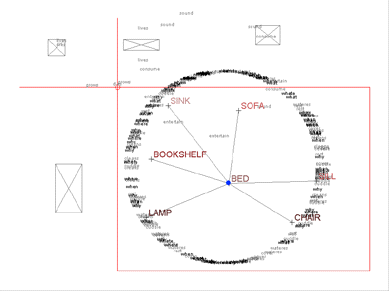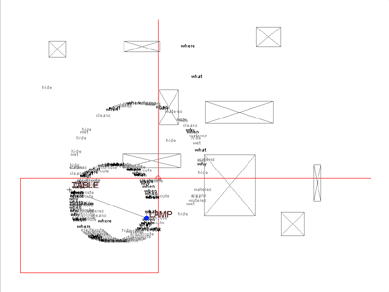

The frame is a device that concentrates the point of view.
Space-making results from the influence of objects (static and mobile) on one
another. The distinction between the frame and space is subtle but important.
Take for example a generic room within which a speech is given followed by a
reception. The space of the speech is distinct from the space of the reception.
What is constant is the shape of the room which in this case would be analogous
to the frame since it defines the field of influence. textSpace enacts the process
of space-making by having an object (a cup) interact with other objects by querying
responses from them. These responses begin to define a circle around the interacting
objects. The frame, which is able to be re-proportioned by the user, influences
which objects can be queried. However, it is the momentary circles that define
the space and not the frame. These circles are not only the boundaries of the
interactions, but a direct result of the interaction. Like the space created
between a handful of people conversing, the circles last so long as the interactions
are maintained. Once the field of influence is altered, so that a different
group of objects is framed, a new space is created.


